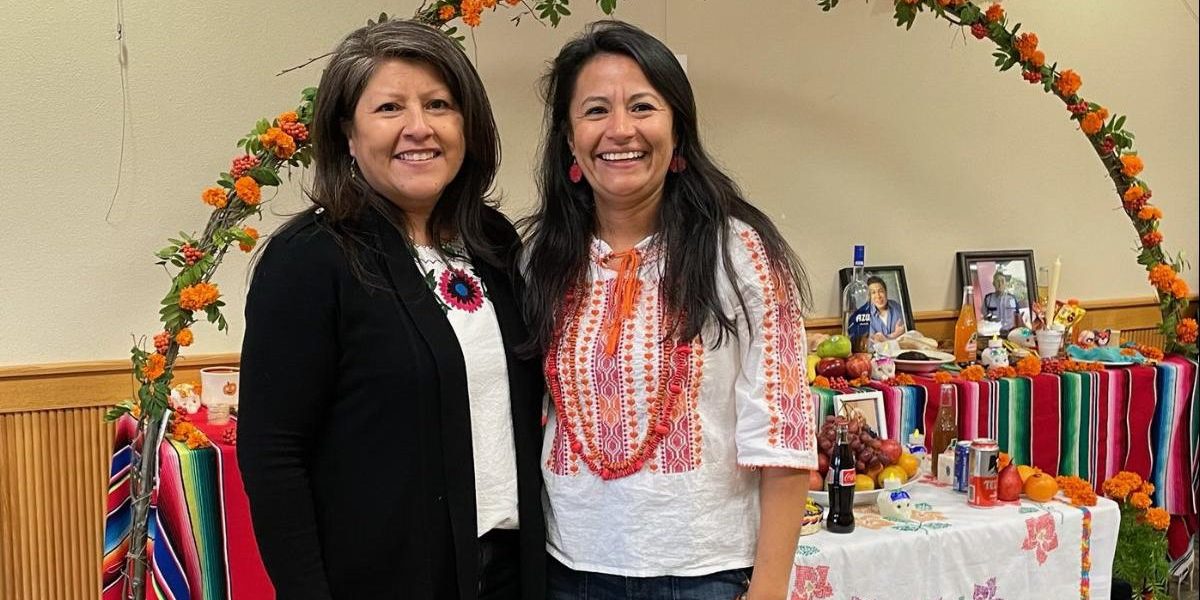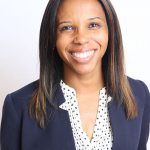Systems change can be a daunting challenge, requiring cross-sector coordination across organizations. But even the most complex systems are made up of people. When we support people to take up their roles and use their individual power, we can create lasting change.
StriveTogether’s coaching program, Coaching for Collaborative Action, supports leaders in stewarding their work and their teams to transform systems. When we transform systems, we create communities where every Black, Indigenous, Latine and Asian youth and family and those experiencing poverty have the opportunity to reach their fullest potential.
In this series, read the stories of four Cradle to Career Network leaders who are developing their strengths through coaching to support their communities to get better, more equitable outcomes. 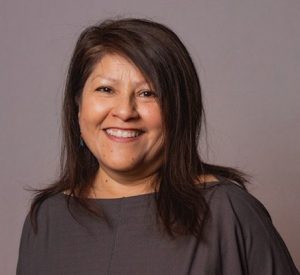
For Rutila Galvan Rodriguez, executive director of Better Together Central Oregon, community is at the center of the work. Better Together supports a shared community vision led by the voices of Indigenous and Latine students and families in Central Oregon, community members whose voices were not traditionally heard.
“In order for this to work, we highlight the community,” Rutila says. “If we are not centering students and families that most need this to work for them, then our work is in vain.”
Rutila started her work at Better Together as the director of youth and family partnerships and became executive director two weeks before the pandemic began. Despite uncertainties created by the pandemic, Rutila and Better Together continued building a shared vision around community voice.
Centering community voice is evident in Better Together’s work. One example is through their educational advocacy for Indigenous communities. Better Together has leveraged resources and new funding in partnership with Papalaxsimisha, a community program by and for the Confederated Tribes of Warm Springs that convenes Indigenous women’s talking circles and organizes youth culture camps. 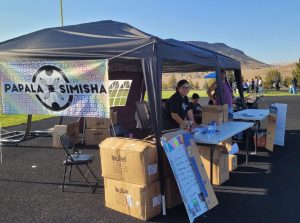
Community is also centered in Better Together’s Partners in Practice initiative, designed to support a diverse early care and education workforce — particularly Latine and Indigenous early educators. The initiative was led by families seeking options to meet their cultural and language needs, alongside providers navigating a child care system that relies on formal education. Through this work, providers seeking certifications and/or degrees access funding, peer mentor support, financial aid assistance and Spanish-language classes and resources.
But these wins were not without challenges. Every organization and institution has their own culture, accountability structure and ways of working. Leaders must fully know and use their power, authority and influence to activate others toward a common cause.
As director of youth and family partnerships, Rutila established relationships with community partners steeped in centering community voice work. As executive director, she’s also navigating complex relationships with funders, board members and other community partners who are at different places on their racial equity journeys. Each partner has a different understanding of community as co-designers and implementers of strategies.
Rutila noted the challenges of “having the hard conversations” about inequity against a community backdrop that is predominantly white with few institutional leaders of color. “I can count on one hand leaders of color,” she says.
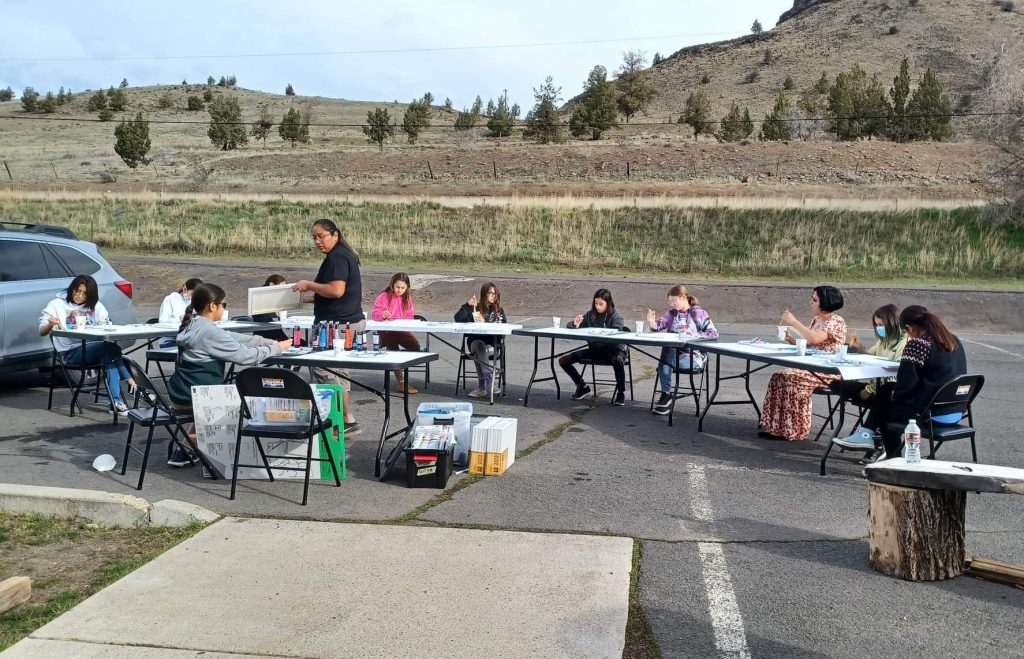
For all leaders, there are highs and lows at different stages. “After a period of initial elation and optimism, feelings of self-doubt emerged,” Rutila shares. “Through the process of self-awareness, there is the deficit mindset. There is the self-talk that can really mislead and misguide, mess up your center.”
StriveTogether coaching supported Rutila to gain new awareness and grow in her ability to lead. With her coach, Rutila named her goals for the year ahead. Her goals included powerfully taking up her role and preparing for her key responsibilities as a new CEO, like board meetings, determining organizational structure, hiring, staff accountability and more. Rutila also wanted to develop her abilities to hold boundaries, establish structure and assert her vision of centering community voice.
Rutila says her coach created a safe, supportive environment that allowed her to share freely, feel seen and heard and positively challenged. “I needed someone to get down where it’s hard — my beliefs around leading and what I’m dealing with — and help me understand how to navigate that,” she shares.
With her coach, Rutila began to name patterns and ask questions to deepen her own awareness and learning about her own leadership. One area of growth was eliminating disempowering beliefs about her leadership. “[My coach would say], ‘Hold on a second, we talked about this three months ago. Tell me what’s behind going down the deficit mindset of being in this role?’ She’s catching and watching and making sure I’m not minimizing my role in leading this organization,” Rutila explains.
As other community-based organizations across the state are adopting Better Together’s shared community vision, Rutila’s leadership is expanding — and the impact of coaching is clear.
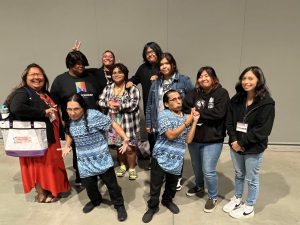
“I’m finding my niche in this role,” Rutila says. She’s keeping the work focused on community and taking up her role as a leader of the organization, including planning an effective board retreat; staffing Ruby Ruiz and Esmeralda Lopez to work alongside community partners and the children and families in Prineville; and engaging critical partners like Papalaxsimish, led by Jaylyn Suppah.
These partners are adopting and expanding holistic work to support high school graduation and postsecondary opportunities, while honoring Indigenous and Latine cultures and elevating community and student voice.
Rutila shares that leadership starts in your belief about your leadership. Leaders must name their unwavering stance as a leader — for Rutila, the centering of community in the work — and lead with confidence. Especially as a leader of color, she says, it’s critical to take an asset-based mindset around your own skills and ability. “[You have to believe] that you are doing it, you have been doing it, you have been doing it well,” she says.
Authenticity is another key. “Leadership is not a model you are supposed to fit into; it is us,” Rutila reflects. “What the coaching has provided is that you don’t have to be something you are not; you are doing it by being who you are.”
For Rutila, the work always comes back to being led by the community’s shared vision, and she advises other leaders to become immersed in their communities. “The community knows who they are already. But [we must go] there and ask them, ‘How do we elevate and support you?’ We are not here to take over or be seen. To aspiring leaders, go and get down in there where the work is happening, where the families are.”

